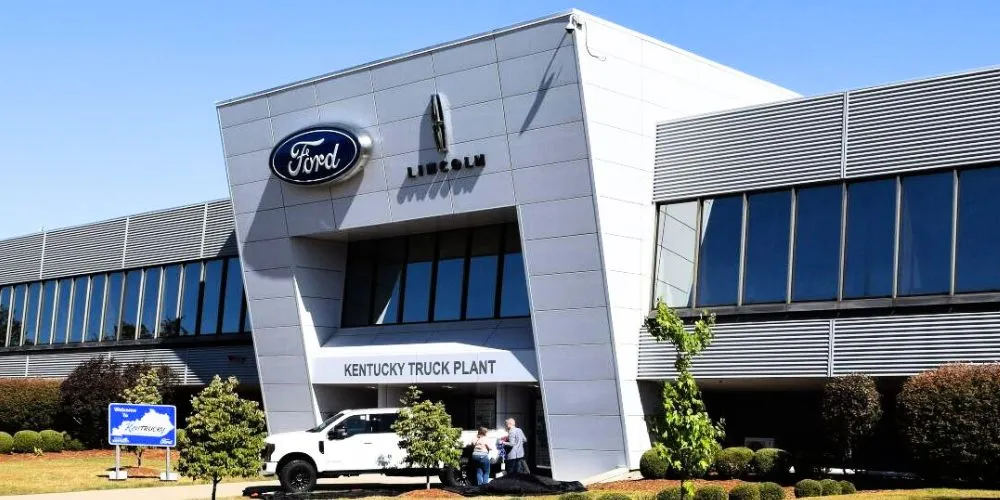Key Points:
- Nearly 9,000 UAW members at Ford’s Kentucky Truck Plant may strike over unresolved local contract issues next Friday.
- Contract talks at the plant are separate from national agreements reached with the Detroit Three automakers last year.
- Core issues include health and safety concerns, such as minimum nurse staffing.
- Ford’s proposal for skilled trades workers to perform multiple tasks faces resistance from the UAW.
Nearly 9,000 United Auto Workers (UAW) union members at Ford’s largest and most profitable truck plant in Kentucky are poised to go on strike next Friday if local contract issues remain unresolved, the union announced. This announcement sent Ford’s shares down by 1.2%.
The contract negotiations at the Kentucky plant are distinct from the agreements reached last year between the UAW and the Detroit Three automakers Ford, General Motors (GM), and Stellantis, which secured record wage hikes for approximately 150,000 members. However, members negotiate separate local agreements addressing plant-specific concerns at each facility.
Health and safety issues have been central to local discussions at the Kentucky plant, particularly with minimum in-plant nurse staffing levels. Additionally, the UAW has raised concerns about Ford’s attempts to reduce skilled trade positions at the Kentucky Truck Plant.
Ford’s proposal to have skilled trades maintenance workers perform multiple tasks across different types of work has been met with resistance from the UAW, which sees it as a threat to job security.
In response to the strike threat, Ford stated, “Negotiations continue, and we look forward to reaching an agreement with UAW Local 862 at Kentucky Truck Plant.” The Kentucky truck plant is a significant revenue generator for Ford, contributing approximately $25 billion annually, which accounts for about a sixth of the company’s global automotive revenue.
This warning of a potential strike comes amidst a broader push by U.S. labor unions for improved wages and working conditions, fueled by labor shortages and favorable public opinion, as they seek to regain ground lost during the pandemic.










